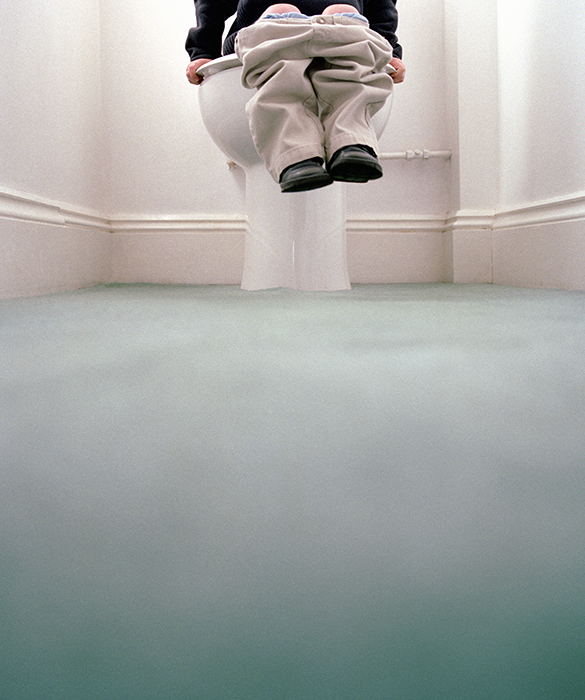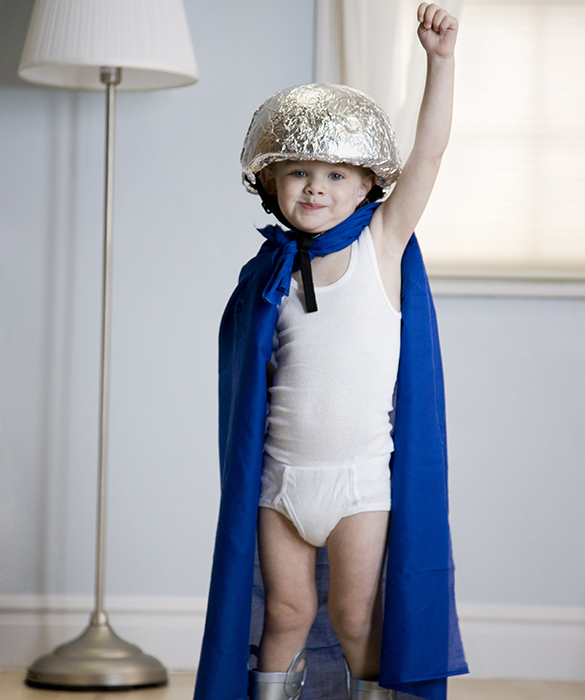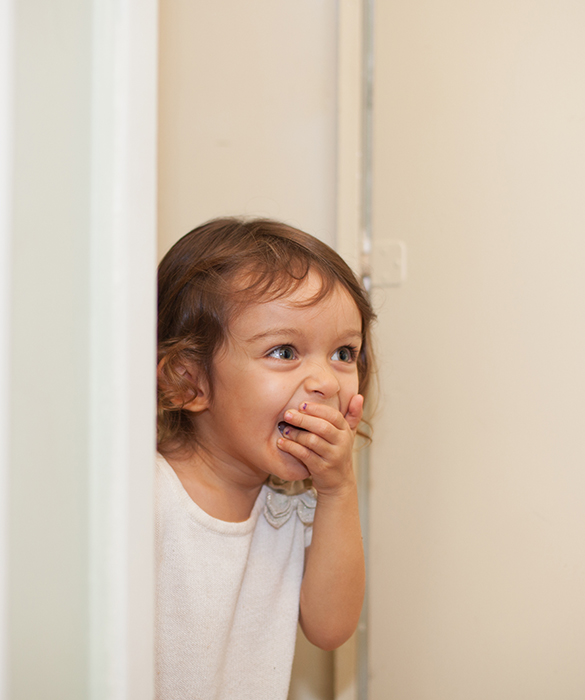Why Is That Funny?

Potty talk and childhood go hand-in-hand. I can't fully explain why words like "poop," "butt" and "wiener" should be so inherently and universally funny to kids, but they obviously are. How do you decide how big of a deal to make potty talk in your house? Here are some suggestions:
Decide for Yourself

You may have heard that there’s a “correct” way to handle toilet humor. Maybe your parents had a definite approach. But with your own children, the first thing you need to do is think critically and thoughtfully about how you want to handle this issue (and others) in your family. Maybe you don’t really have a problem with hearing your kids talk and giggle about pee-pee. Or maybe it’s really bothersome to you. Either way, form your own opinions rather than just follow what you’ve heard you should do.
Know That It's Normal

If your kids think “stinky armpit” is a hysterical phrase, then they’re completely normal. Even if you decide you don’t approve of potty talk, you don’t need to worry that something’s wrong if your children guffaw at body humor. And admit it: Isn’t it funny sometimes to you, as well? I couldn’t help but crack up recently when my boys and husband were dying laughing about a library book about the planet Uranus. (Did you know that Uranus is made up of rocks and dust, and that people on Earth can’t see Uranus without a telescope?)
What's Really Important

Think about what actually matters to you. Do you find the word “butthead” patently offensive, or is the problem that it’s hard to use in a kind and respectful way? In my own home, with my kids, our rule is that all speech needs to be respectful. I don’t happen to mind potty words if my kids are being silly or playful. It can get annoying, sure, but I don’t necessarily see those words as worse than other childish phrases and songs. But words that hurt someone’s feelings or show disrespect—whether they have anything to do with the body or the bathroom or not—are off-limits.
Why Words Matter

Help your kids understand that they should consider the words they use not because certain words are inherently bad, but because words are powerful. They can hurt, heal, please, build up or tear down. Explain that you have a reason for teaching them about the terms they choose.
RELATED: Teaching Kids Not to Hurt Others
Don't Demonize Words

You may decide that you don’t want to hear potty language. Even (and especially) if you don’t, it’s probably not a good strategy to outlaw them completely. Making them taboo will only increase their power. So instead, explain to your kids, in a matter-of-fact tone, that "Potty words are for the bathroom, so it's totally fine to talk about poopy butts, but go talk about them in the bathroom."
Set Boundaries

Even if you don’t mind some giggling about bathroom humor, chances are that you’ll get tired of it at some point. You don’t have to listen to jokes about bodily functions 24-7, any more than you have to listen to the playlist of kids songs any time you’re in the car.
RELATED: Should I Leash My Child?
Redirect

Try leading your kids in a different direction. When they say “butt,” you say “earlobe.” Find other body parts (“nosehair”) and silly phrases (“shamma-lamma-ding-dong”) that can incrementally lead the conversation elsewhere. Or simply offer a completely different activity that can give them positive attention in another domain: "Let's get out the frisbee!"
Be Respectful of Others

If you have no problem with your kids using potty talk, it’s still important to talk to them about how other families might have different rules about what’s OK to say. Make sure your children know that certain words are fine to say at home, but that they may not be appropriate at school or at some friends' homes. It’s actually good for kids to realize that there are different rules in different contexts.
Prioritize the Relationship

However you decide to respond to potty talk, make sure that your relationship with your children remains the central focus. When you laugh with them, when you explain your reasoning, and even when you set boundaries, make it all part of a loving relationship, where, regardless of how you might feel about the way they are talking, you love and approve of who they are, without reservation.




